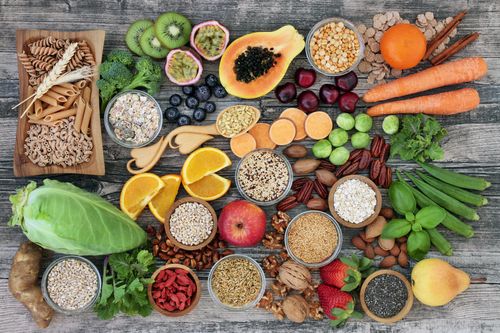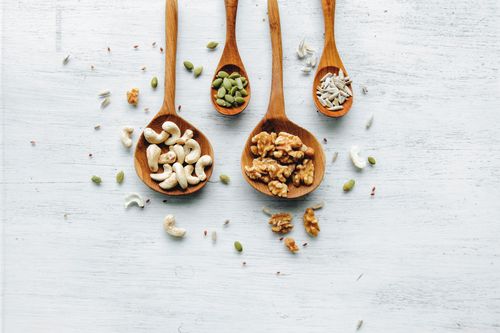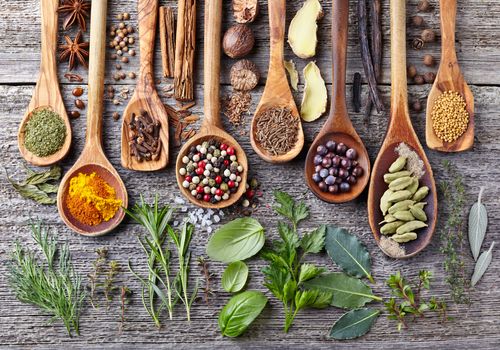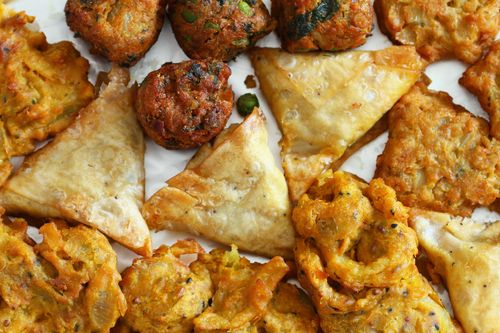Gastritis Diet – What Foods to Eat and What to Avoid

Hiral Patel
February 6, 2023

Hiral Patel
February 6, 2023
Stomach lining plays a significant role in maintaining your digestive health. It is responsible for generating acid and enzymes in your stomach that are required to break down the food so that your body can extract the nutrients it needs.
The lining also secretes mucus to protect itself from acid damage. However, sometimes the lining gets inflamed and starts secreting less acid, enzymes, and mucus. This type of inflammation is known as gastritis, and it is often associated with pain and discomfort in the stomach.
Gastritis is defined as a condition in which the protective lining of the stomach gets inflamed. It is usually classified into two types – (i) acute gastritis and (ii) chronic gastritis. Acute gastritis involves sudden, severe inflammation of the lining. Whereas, Chronic gastritis is linked with long-term inflammation that may last for years; if left untreated, it may cause abdominal bleeding or may increase the risk of developing stomach cancer.
There’s one more classification of gastritis, known as Erosive Gastritis. It is a less common form of the condition that does not cause much inflammation, however, may lead to bleeding and ulcers in the lining of the stomach.
What are the Symptoms of Gastritis?
What is Gastritis Diet and Who Should Follow it?
What Food Items Should Be Included in a Gastritis Diet?
What Food Items Should Be Avoided in a Gastritis Diet?
Frequently Asked Questions (FAQs)
Mentioned below are the most common symptoms of gastritis:
In the case of erosive gastritis, you might experience a few additional symptoms, such as
There’s no denying the fact that diet plays a vital role in maintaining your digestive system and overall health. In case you’re suffering from gastritis or experiencing indigestion, abdominal pain, nausea, and feeling of fullness, you should follow a gastritis diet. The prime aim of a gastritis diet is to control Helicobacter pylori (H. pylori) infection and ease gastritis symptoms. A gastritis diet should include the following food items:

The dietary fibre that is left undigested produce short-chain fatty acids that have a beneficial effect on gut bacteria
Proteins are known to repair the damaged stomach lining.

Food items that are rich in omega-3 (polyunsaturated) fatty acids help reduce stomach inflammation
Research shows that probiotics or good bacteria promote a healthy gut. It helps eradicate H.pylori and reduce stomach inflammation.

Food items that are rich in flavonoid exhibit antibacterial properties that can eradicate H.pylori.
Do not eat right before bedtime: Keep a gap of 2-3 hours between your meal and bedtime.
Eat small, frequent meals: If you’re suffering from gastritis, it’s easy for your stomach to tolerate small and frequent meals rather than large meals.
Following are a few food items that work best in managing the symptoms of gastritis:
Studies show that drinking green or black tea at least once a week can significantly reduce the prevalence of H. pylori, a type of bacteria that commonly causes stomach ulcers and gastritis. Manuka honey contains antibacterial properties that help fight infection. Adding it in green tea may prove to be beneficial.

Apples, being rich in flavonoids, exhibit antioxidant effects in the body. They are also enriched with fibre, which is beneficial for people with gastritis.
Other flavonoid-containing food items include onions, garlic and celery.

Just like apples, cranberries are also rich in flavonoids and fibre and thus helps improve the symptoms of gastritis.
Yoghurt contains good bacteria such as Streptococcus thermophilus and L. bulgaricus. These bacteria are known to promote a healthy gut by reducing the prevalence of H. pylori and infection-causing bacteria in the stomach.
Following are a few food items that are considered worst for managing the symptoms of gastritis:

While coffee might help you get moving in the morning, it also compels the stomach to secrete gastric acid in large amounts, which may increase the existing irritation. In case you are suffering from mild gastritis, you may be able to tolerate a cup of coffee in a day but, more than that can trigger discomfort. Also, please note that decaf coffee may not be a great substitute, either.
Alcoholic beverages, including wine, beer and mixed drinks are known to irritate the lining of the stomach and worsen the symptoms of gastritis. In fact, a study in 2002 revealed physical symptoms of gastritis in people who consumed alcohol chronically over five years or more.

Like coffee and alcohol, soda is also known to worsen the symptoms of gastritis. Try replacing soda with unsweetened lemonade that may soothe your stomach.
Research shows that ingesting milk multiplies the production of stomach acid, which may worsen gastritis symptoms. Any relief experienced after drinking a glass of milk is likely to be temporary, and within a couple of hours, symptoms may worsen.

No matter how tempting it is to reach for chips or fries, they may irritate your already inflamed stomach. Also, since they are difficult to digest, the symptoms of gastritis may worsen.
There’s no specific diet that can treat gastritis, however, consuming certain foods and avoiding others may help improve the symptoms or keep them from getting worse. To sum up, you need to follow a diet that is not high in fat and ensures your stomach is not additionally burdened with food that is relatively more difficult to digest.
Disclaimer: The above-mentioned food may only help to manage your gastritis or lessen the symptoms. Therefore, it is important to get the right treatment for an underlying cause of gastritis.
A. Yes, you can eat eggs if suffering from gastritis. Food items such as eggs, lean meats, poultry (chicken and turkey), fish, beans, and nuts are known to be rich in protein. Thus, these food items help repair the damaged stomach.
A. Following are a few home remedies to treat gastritis:
A. Yes, in case you are experiencing any symptoms of gastritis milk should be avoided.
Milk might provide temporary relief, but in the long run, it can increase the production of stomach acid, thereby worsening the symptoms.
A. No, diet is not enough to treat chronic gastritis. Following a healthy diet may relieve the symptoms but for proper treatment, a doctor should be consulted to alleviate the underlying cause.
A. Acute gastritis often clears up by itself. However, if the symptoms last for more than a week you should consult a doctor. Also, it becomes imperative to see a doctor immediately if the symptoms include vomiting blood or black and tarry substance.


Good
i have antral gastritis and can not drink milk because it cause so much gas mostly in night time that why avoid drink milk in night time.
I have been having this type of stomach pain about half way through my night;s sleep and this article has given me a lot of information on how to control the pain. Thank you. Lois in Tennessee
Thanks for sharing your thoughts on this subject! Great and practical tips you have shared here. I’m definitely going to bookmark this.
I suffer from gastritis since a few years. I am seeing an gastroendochronologist but still cannot find the cause. Will try the diet you suggested.Will try to ask my dietician from healthyfime to send me a gastritic based diet
Thanks
Thank you so much for giving this content to us. This is really helpful to us. My neighbour has the Gastritis problem I will definitely share your this blog to him.
Thank you…